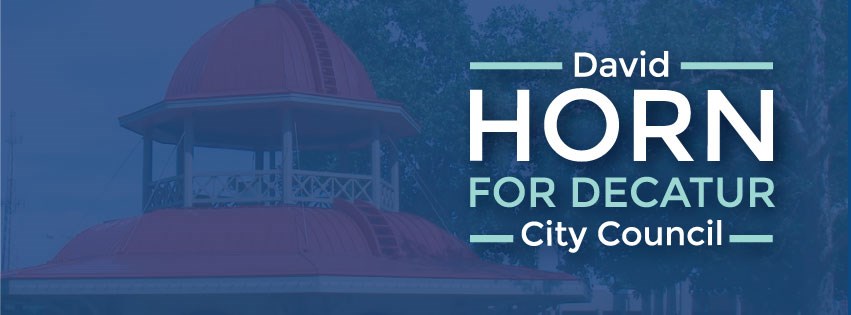
Decatur's neighborhood revitalization initiative does not keep pace with rate of blight
At its June 15 meeting, the Decatur City Council approved the next step toward demolition of 44 unsafe structures throughout the city. Demolition of delipidated structures, some of which have been declared unfit for human habitation since 2010, will improve the neighborhoods that the houses are located in. However, the city is not keeping pace with the rate of blight.
Since the beginning of the year, the city has issued 862 nuisance violations, declared 127 structures unfit for human habitation, boarded-up 60 properties, and the demolition list has increased by 19 properties to 191. The city has demolished 13 properties year-to-date.
Decatur is one of the fastest shrinking cities in the U.S. (>7% since 2010) and our significant population decline has impacted the city’s housing market. There are 33,415 housing units in Decatur of which 4,328 are vacant (13%). One estimate by city staff indicates a city of our current size should have 28,000-30,000 units, an excess of approximately 3,000-5,000 housing units. Even if we were to demolish the 100 worst housing units every year, it will take years if not decades to address this single aspect of neighborhood revitalization.
There are many reasons to be concerned about the large number of vacant properties. An overabundance of housing can lower surrounding property values. Furthermore, delipidated houses are dangerous and may be used as places for manufacturing drugs, storage of contraband, and as targets of arson.
A common argument is that the city does not have the funds necessary for a comprehensive neighborhood revitalization initiative. However, it may be that the city council needs to be provided with a greater range of options for funding. For example, in response to the COVID-19 pandemic, staff compiled a list of planned capital expenditures that could be easily deferred or a delay was possible. Staff identified $6.4 million in projects in 2020 (easily deferred = $2.5 million and delay possible = $3.9 million). Is delaying the purchase of a $140,000 dump truck more important than the demolition of 10 burnt-down houses? This is a question for the city council to deliberate.
At its April 6, 2020 meeting, the city council accepted a $1.25 million grant from the Howard G. Buffett Foundation that will revitalize and positively transform the Johns Hill Neighborhood. This grant also provides a blueprint for an aspirational plan that could be implemented city-wide and allows us to estimate how much funding is needed.
The Johns Hill Neighborhood represents 4% of the total area of the city’s urban core and 17% of the city’s target area for revitalization. Assuming that the $1.25 million grant used to fund demolitions, cleanups, and lot acquisitions in the Johns Hill Neighborhood is representative of the target area and urban core, the city has an immediate need for $7.35 million for the target area and $31.25 million for the urban core (by way of comparison dredging of Lake Decatur including interest and fees will cost the city >$160 million).
Neighborhood revitalization is considered the number one priority of the city. The time has come for Decatur to create a large-scale and aspirational plan for neighborhood revitalization and begin to identify the funding sources to achieve our number one priority.
